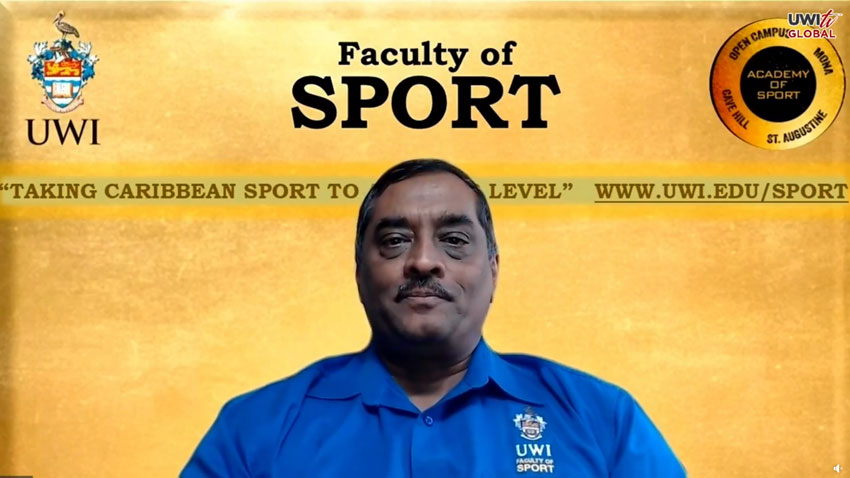UWI Dean reveals ‘greener’ plans for the University’s sporting facilities

Dean of The University of the West Indies Faculty of Sport, Dr Akshai Mansingh is intent on transforming sporting facilities at the four landed campuses of the regional university towards net zero carbon emissions. In so doing, the facilities would be powered entirely by renewable energy sources.
Dr Mansingh revealed the plan during a panel discussion that immediately followed the 21st Frank Worrell Memorial Lecture hosted by the Faculty of Sport on June 28. The memorial lecture is held in tribute to (the late) Sir Frank Worrell who joined The UWI staff as Warden of the Irvine Hall of the Mona Campus, following his retirement from Test Cricket in 1963. He also served as Director of Sports at The UWI, Mona and St Augustine Campuses, where he nurtured and mentored students, and has been recognised as one of the pioneers of the development of cricket at the Mona Campus.
The June 28 lecture featured Prime Minister of Grenada, Dr. the Honourable Keith Mitchell as the keynote presenter who spoke on Sport and Climate Change.The discussion was moderated by former international cricketer, administrator, and cricket commentator Daren Ganga, and also featured Chair of the Defeat-NCD Partnership, Dr. James Hospedales.
Dr Mansingh said the plan would ensure the UWI facilities are self-sufficient in the areas of electricity generation and water collection as part of climate action efforts, which could serve as a model for community sporting centres. He asserted that partnerships are critical to bringing this to reality.
The UWI Dean endorsed the call to action by Prime Minister Mitchell for immediate action on climate change and pledged the support of the Faculty on his recommendations of a roundtable discussion, research, and media engagements.
“We’re willing to start the conversation and carry forward these studies and so on with partnerships, with interested parties, with the responsible agencies…with Prime Minister Mitchell and CARICOM as a whole.”
He said the Faculty of Sport was fully supportive of research that could benefit athletes, and explore areas such as the degree to which the body temperature rises at different times of the day and strategies necessary to ensure that athletes remain comfortable, cool and hydrated due to rising temperatures.
During his remarks, Dr. Hospedales acknowledged a gap in research specific to the issue of climate change and sport in the Caribbean. “One of our weaknesses in the Caribbean is we depend too much on external research. (Those are) important to give you context but we need to collect our own data on what’s happening with the grounds, map the vulnerabilities, look at collecting data on heat and air pollution so that we can better protect players and make the game safe for the future” he said.





